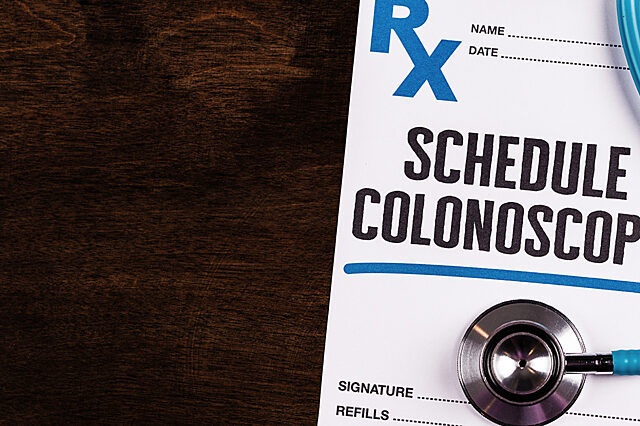Colon Cancer Screenings Can’t Wait
In general, people tend to avoid getting routine colonoscopies because they “feel fine” or “have no family history of colon cancer.” Yet the best way to treat colon cancer is to help prevent it.

In general, people tend to avoid getting routine colonoscopies because they “feel fine” or “have no family history of colon cancer.” This is a basic flaw in the way we interpret our preventive health care. The best way to treat colon cancer is to help prevent it.
Why is colon cancer awareness important?
Though this subject may not be on everyone’s minds at all times, the facts show how dire it is to be aware of this type of cancer.
- Colon cancer is the second leading cause of cancer-related deaths in the U.S. for males and females.
- More than 140,000 cases of colon cancer will be diagnosed this year.
- The average risk for a healthy patient to be diagnosed with colon cancer is roughly 5%, and this can double or triple if you have a family history.
- Research shows that African Americans have an increased risk of contracting colon cancer and a higher mortality rate than other ethnicities.
What are the symptoms of colon cancer?
Be wary of the following symptoms, whether or not you’ve already been screened. Contact your provider immediately should any of these symptoms appear.
- Any prominent changes in stool. Blood in your stool is never normal and shouldn’t be ignored.
- Changes in stool consistency, such as diarrhea or constipation.
- Unintended weight loss or fatigue.
- Abdominal pain that’s not linked to other underlying conditions or illnesses.
Can I prevent colon cancer?
While not all cancers can be prevented, there are several measures you can take to reduce your risk:
- Schedule your colonoscopy.
- Find out if any close or extended family members have been diagnosed with colon cancer. This can determine your risk factor.
- Maintain a healthy diet. A low-fat, high-fiber diet can lower your risk.
When should I get a screening?
The prior notion that colon and rectal cancers were a problem of the elderly is false and has been overwritten. New guidelines per the American Cancer Society have lowered the screening age from 50 to 45 years of age. This is due to the recent trend of colon and rectal cancers being diagnosed in younger patients.
Prevent colon cancer by scheduling your screening. Get back on track. Your health depends on it!
Getting screened is an important and safe process. UF Health Surgery – Jacksonville follows CDC infection prevention guidelines for hospitals and is taking extra precautions to keep patients, visitors and staff safe.
Learn more and request an appointment today at UFHealthJax.org/surgery.